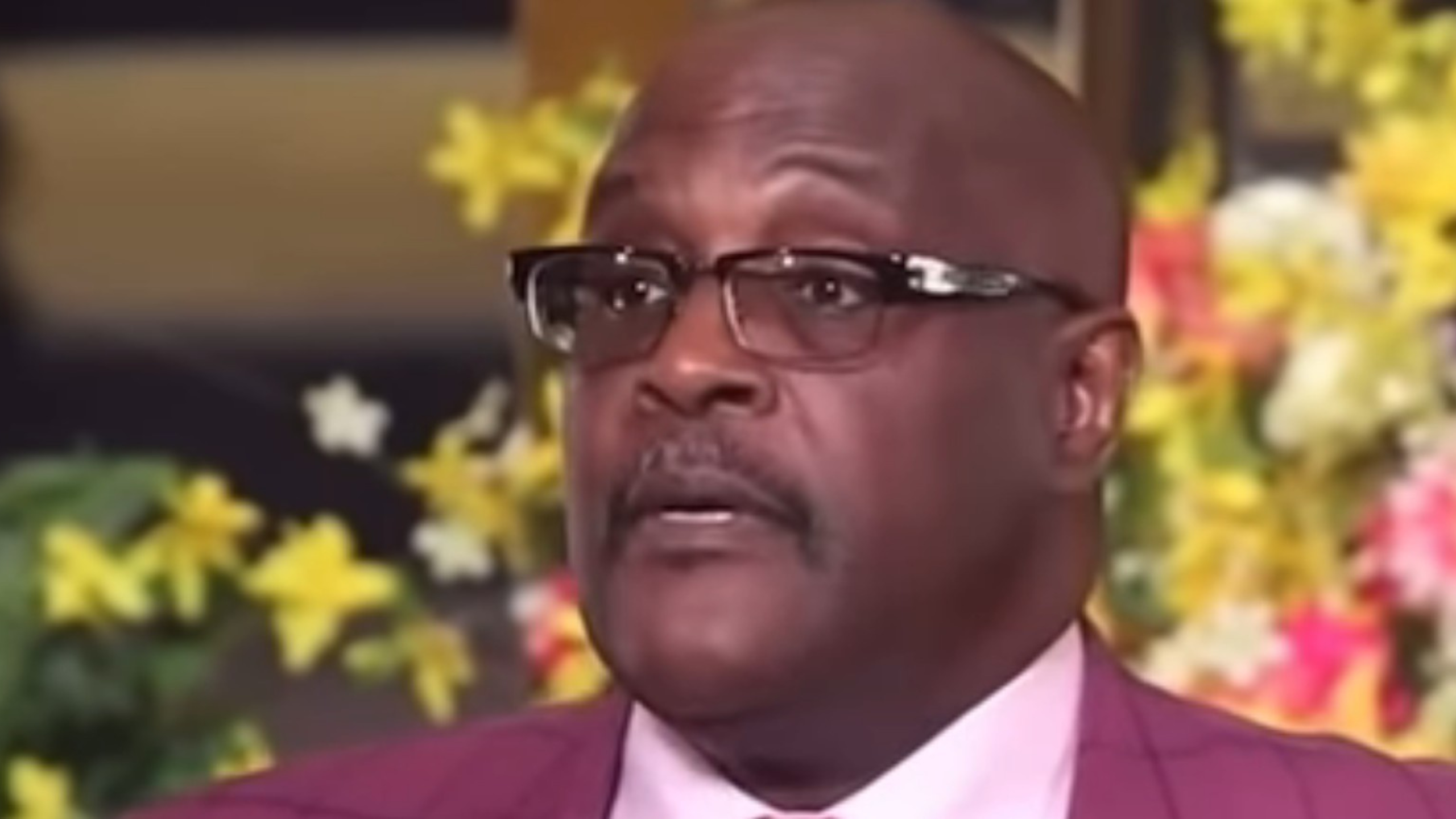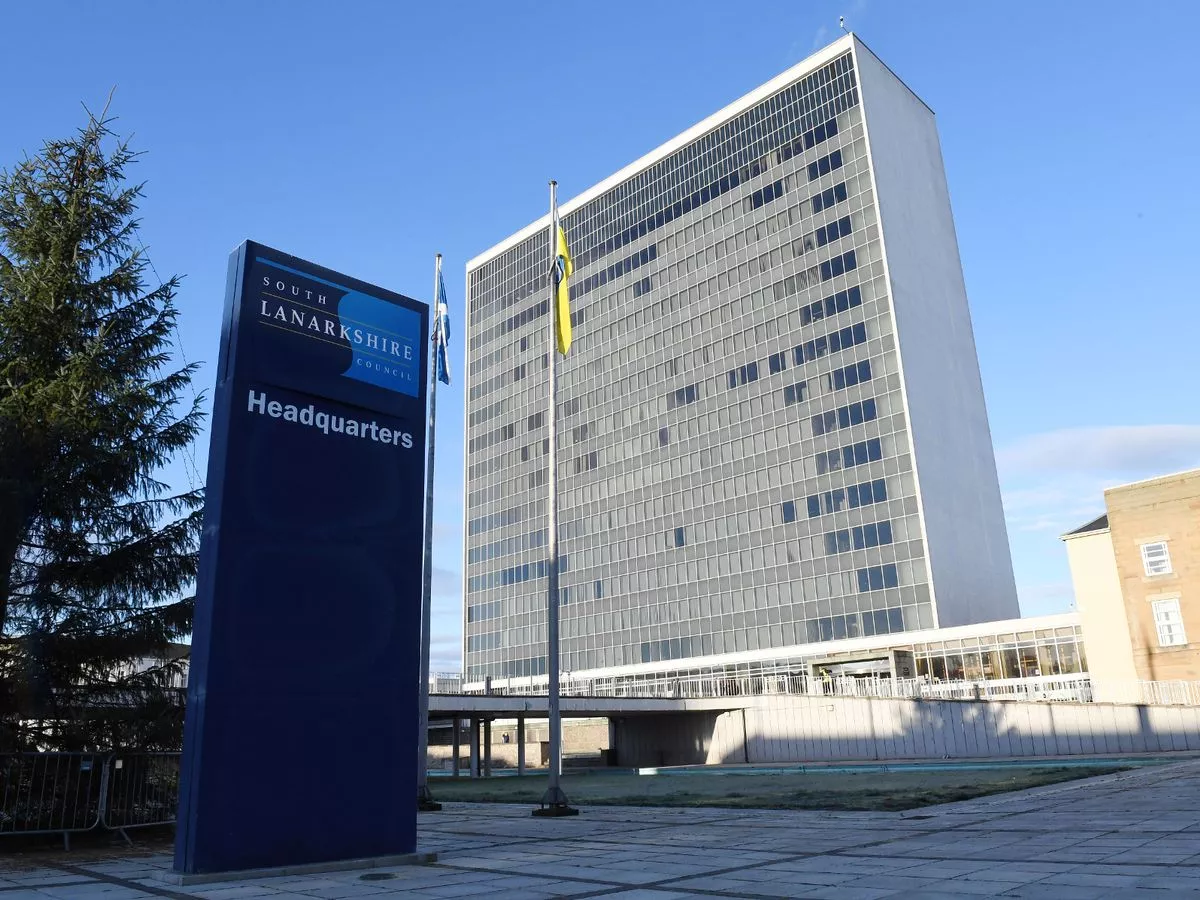Copyright forbes

Completing personal income tax forms online and paying taxes using a computer. data analysis government, state tax, documents, tax return calculations, reports, financial research In this episode of Tax Notes Talk, Portuguese Tax and Customs Authority General Director Helena Alves Borges discusses the agency’s modernization efforts and preparation for pillar 2. Tax Notes Talk is a podcast produced by Tax Notes. This transcript has been edited for clarity. David D. Stewart: Welcome to the podcast. I'm David Stewart, editor in chief of Tax Notes Today International. This week: setting priorities. At the beginning of October, the podcast team traveled to Lisbon for the International Fiscal Association's annual congress. While there, we recorded several interviews, as well as some sounds of the city, which you heard at the beginning of the episode. We'll be releasing those interviews in the upcoming weeks, so keep an eye out on your podcast feed. This week's episode features Helena Alves Borges, the general director of the Portuguese Tax and Customs Authority. Her discussion with Tax Notes chief correspondent Stephanie Soong focuses on the priorities of the Portuguese Tax and Customs Authority, including modernization, compliance with pillar 2, and future goals and projects for the agency. Now, one note before we get to the interview: We recorded this on the road, so the audio may sound a bit different than our usual interviews. And with that, let's go to that interview. Stephanie Soong: So, thank you so much for being with us today. I know you're very busy, so we really appreciate your time. So, what are the priorities of the Portuguese Tax and Customs Authority at the moment and why? MORE FOR YOU Helena Alves Borges: Thank you for the invitation, and it's a great pleasure to talk with you and to share my experience as director general of the Portuguese Tax and Customs Administration. In fact, nowadays, the world is changing in a faster way than I could have seen in the past. I think tax administration needs to be agile. We need to be able to modernize, to prepare not only our IT systems, our tax system, our citizens, our businesses to be able to comply, to be autonomous. And in some way, to make [the] tax system, for the most of them, seamless. So that way, we need to modernize to assure we are able to recruit the people with the right skills to assure the digital transformation and make things easy for everyone. Of course, we know that [the] economy and life is getting more and more complex, and it’s not easy to simplify tax compliance in the middle of all that complexity, but we are doing whatever we can do. And I think achieving the goal, because our tax administration have been recognized with an innovative one, and I think in Portugal is a relevant institution that all governments, in [the] many years that I've been in my position — it's 10 years now — we have been achieving our goals and have good measures in our economy, and I think it's an honor to serve my country that way. Stephanie Soong: That's fantastic. Yeah, I know that Lisbon is very technologically advanced as far as your tax administration. So what challenges and opportunities does modernization present the tax administration? How have global events may have shaped that? Helena Alves Borges: These challenges are the opportunities to transform, which is one of our priorities because digital is about transformation. It's not only simplification. We need to be able to manage a huge amount of information. We have new data, new information from different countries, geographies of the world. And nowadays, tax systems, we don't manage it only an internal approach, we need to cooperate at the international level. And we should build a good networking and improve the levels of cooperation. Because when we become more and more international as businesses are global, as citizens move around the world, and as Portugal is attracting so many people from the world, we need to be able to use the information and to use it in a way that we prevent conflicts with the other jurisdictions and assure a certain level of certainty to the citizens and businesses who make an option to invest in Portugal and to live here. So it's our big challenge is to become properly an international tax administration to manage all these expectations from governments, citizens, and business, and we are trying to achieve our best. Flag of Portugal, 2008. Creator: Unknown. (Photo by LTL/Heritage Images via Getty Images) Getty Images Stephanie Soong: I imagine the start of the pillar 2 global minimum tax rules has made that a little more complicated. Could you tell me more about how the tax administration is preparing for compliance for pillar 2? Helena Alves Borges: Oh, it is a huge challenge. We are fully engaged, and I think our government and parliament have produced legislation. We are designing and implementing our tax system, and we are working hard and closely with our businesses to make sure that they are also ready to implement it. It's not easy to implement, it has too much complexity. And we selected not a big team, but a small team as a competent and multitask team to work on it and to assure that we will be ready, and could have in Portugal an ecosystem for taxation that assure that we feel that we have fairness in this situation because pillar 2 has that ambition. We don't know how the world will be able to implement it because some jurisdictions may be not so prepared to manage all that complexity. But I think Portugal will be ready, as we used to be when we have some aims to work on. I think we will do whatever will be needed to comply with the world tax system, that's what pillar 2 is. Stephanie Soong: Well, that's good to hear. I'm sure a lot of listeners will be happy to hear that Portugal will be ready for pillar 2. So a question, just taking it to the EU level. They're doing a decluttering exercise and simplification exercise. What kind of measures do you think should be decluttered, especially in light of pillar 2? Helena Alves Borges: I think it's a bit early to clarify all the issues because discussions at EU level and OECD level are in place. I think the scenario is not fixed, and it's better if we try to understand what are the expectations, the needs, and the way we can build a consensus around. Because if you have the guidelines fixed, maybe it could be in some way more difficult to move in this scenario now because things move every day. So if we are agile, this [is] efficient to be a good partner in the ecosystem; I think it's the best situation [to have] everything clear now. I think we have been working hard with the businesses and partners to assure that we have mutual agreements and that we have the ability to prevent conflicts in the international way. In some way, it's our tradition to build consensus around our projects and our ambitions, and I think it's what we want to continue building. Stephanie Soong: Let's go back to when you mentioned modernization of the tax administration. Does AI factor into your modernization? What kind of technology are you venturing into? Helena Alves Borges: Oh, AI is a key issue nowadays in the discussion, but it's not something new in tax administration. We have been using technology. That in fact, the big difference is about generative AI, which we should be a bit more careful when we implement solutions with this new approach because there are sensitive information, and we don't want to damage the reputation and the trust that we have been building during these years. But of course, we are — all society, and in particular Tax and Customs Administration, will have to. But we try to use that information on productivity more than for the relationship to the citizens. Of course, risk analysis could benefit from that technology. And as we are Tax and Customs, I think we will benefit a lot for using AI to use and to mix and to have the most we can have from the synergies because tax and customs are more and more connected. A photo taken on January 2, 2025 shows the letters AI for Artificial Intelligence on a laptop screen (R) next to the logo of the Chat AI application on a smartphone screen in Frankfurt am Main, western Germany. (Photo by Kirill KUDRYAVTSEV / AFP) (Photo by KIRILL KUDRYAVTSEV/AFP via Getty Images) AFP via Getty Images And e-commerce asks for more technology because the amount of transactions will move us in the future to more data-driven tax and customs administration and AI. And the regulations, we have to obey, to take. And our priorities are, of course, something which at the first approach, we can think it's a limit in the use you can do. But in fact, it's something which helps and gives us security because we are all discovering what it could be in practice, and we should be careful because we have special responsibilities in our society and information is essential. If we damage the relationships with the businesses and citizens who give us the information to a specific aim and we use it with a different objective, it could be worse than waiting a little bit more and be sure that we invested enough, not only on cybersecurity and on trust. And then we will achieve the benefits of being careful, which is something I expect my administration can continue doing in a way we are, of course, planning to. Stephanie Soong: I agree with you that with great power comes great responsibility, especially with AI. I use it too sometimes, and it is important to use it responsibly. So let's talk about some projects that maybe you're personally excited about. Are there any initiatives that you are excited about? Helena Alves Borges: Yes. As you know, we are a country which was an early adopter in many solutions, and e-invoicing was one of them that Portugal started many years ago. So we are now doing as much as possible to learn from the benchmarks that have been developing during these years and try to be ready to implement VIDA [VAT in the Digital Age] in a special way. That we could not only learn about our experience, our mistakes, our ambitions, but that we are paying attention to what the others, our partners, are doing and we can benefit. And in some way, we can have a leapfrog and benefit from these years of learning and working together as a team at EU level. I think it would be a relevant new step that EU is designing for the future, not only at tax administration, but also with customs because customs reforms nowadays in Europe is a huge project. And I think it will be not only benefit the financial budget at EU level, but it protects, could protect, our common market. And we are very, very committed to it, with it. So of course, the most we can do is to support the dreams of our staff and build a strong culture of innovation and have the resources they need to support and to make happen their dreams. So the most we are proud [of] is our innovative culture and this high level of the quality of our staff, and managers of course, that enabled our achievements during these years. Stephanie Soong: So speaking about your staff, we first met talking about women in tax administration a while back for my article. So you are the first woman director general of the Tax and Customs Authority. You said back then that women made up a good proportion of your staff. So what are some trends you're seeing now when it comes to women in tax administration? Is it getting better? Is it still the same, or is it getting worse? Business vision and target, Business woman holding telescope standing on red arrow up go to success in career. Concept business, Achievement, Character, Leader, Vector illustration flat Helena Alves Borges: No, nowadays — In fact, I'm the first woman in the tax administration as a leader, but I think maybe the most relevant is that I spent a long period of my career in this high-exigent project and trying to do my best. I think I every day try to give my people, my country, as much as I'm able to and try to show that it is possible to be done by women. Because as I spent 10 years in this position and achieving every year the goals for my country, I think the new generation don't need to ask questions if it is possible for a woman to do it. I think it's proved it is possible. It’s not only because we are women, but diversity. We need to have — We are not equals. We need diversity to be able to understand the expectations of the society we serve. In a way, if we can complement each other, it will benefit the project, and it will be able to attract the best ones in the society. Because we have been recruiting for many years on the merit-based approach, and it's not only about the culture of the country and the organization, but it needs some support outside our office, our job. We need to have a way to be a professional and, at the same time, if we want to have family and kids, we feel that we can manage it and we have support for that. Because otherwise, we will be more in stress. And in fact, I feel I am the privileged one because I had my career and my family, and of course, my family supported my dreams and my ambition to serve my country. And I think I could manage it in a balanced way, and I recommend that every woman try. If we think we could do something that we could be proud of it, it gives us some special energy that makes things happen, and we can move the others with us, which is in fact the role of leaders. In some way, we should help the others dream and build their dreams, that's it. That's what I've been doing during these years, of course following the instructions of the governments implementing the law. But in fact, taking people with me to develop and then build their dreams there, because it's the team which is relevant on this special mission I have to manage every day. Stephanie Soong: Wonderful. I’m sure you're a great role model for everybody in the department, in the Authority. Helena Alves Borges: Yes, I try. I have special care that we can have. Of course, we have hierarchies, we have rules, but we try to have empathy in the ambiance and that we take care of each other. Because in some way, we feel that tax and customs administrations have to be more than professionals, they have to feel as part of the same family and to protect themselves because sometimes it's not easy to put in practice the mission we have to. And we should be resilient and able to survive in this difficult world because it's not about compliance; we have also the fight against fraud and avoidance, and even the criminals which are in our mission. So it is not we have these two approaches so different and be able to manage in those different scenarios, it's not easy. But if we could be an inspiration for the new generations, we will be able to recruit the best ones in our society and in some way have a sense of purpose in our activities, make them make a choice for public services, which is really what we do every day. Stephanie Soong: Looking ahead, what can we expect from the Tax Authority in the near term? Helena Alves Borges: Oh, in the near term, I think we need to make simple what is complex. Of course, we use technology for some of that, and guidelines, and in some way agreements, mutual agreements prevent conflicts to the others and try to give them certainty. That's what we need to assure that the ones who decide to come stay for a long time, for living, for making business, and of course for paying taxes and legal trade. That's what we need to do. Of course, using the best people, the best IT solutions, and surviving, and benefits from the networking we have been building and trust in some way we created around. I think it's the next, the near future. But in [the] long term, I think we will have a huge transformation because we are moving from declarations to data-driven administration. We will have data, and we will have to calculate. We will have to in some way assure we can collect, with being able to reduce the level of anxiety, which always is nearby on taxation. But we need it to have, in some ways, sustainability in the society, in the tax system, because we always need revenue, we need that trade, which is changing a lot in these years from B2B [business to business] to B2C [business to consumer] at the international level, can be more, in some way, controlled. Not only for revenue, but even for security and to prevent risks related to terrorisms. So tax and customs have to be more and more connected and attentive because it's our responsibility. More than have achieved the levels of revenues our countries need to implement the best policies, but we should be good partners for the policies and the courts, and to try to prevent that the levels of security go down. Because as you know, Portugal is the seventh in the ranking of security in the world, and we value it very much. And customs, in that, has a special role on that specific issue, and we pay a lot of attention. This is one of our highest priority, is having more and more technology to assure that the levels of control are less intrusive and we can assure that the flow of goods can be in the proper mode. But at the same time, we can prevent risks that nowadays we know, all over the world, are getting higher and higher on illicit trade, which we are very much committed in preventing that they grow in Portugal. Stephanie Soong: Well, we're definitely looking forward to hearing more when we cover the Tax Authority. So thank you so much for all your time and your great responses. And I really appreciate you coming out, and we hope to talk to you again soon. We'll have you on the podcast again. Helena Alves Borges: Oh, thank you. It was really my pleasure and collaborate with Tax Notes, which is something I've been reading for a long time. And it inspired me in my career and in my position, so congratulations for your project. Thank you. Thank you so much. Editorial StandardsReprints & Permissions



